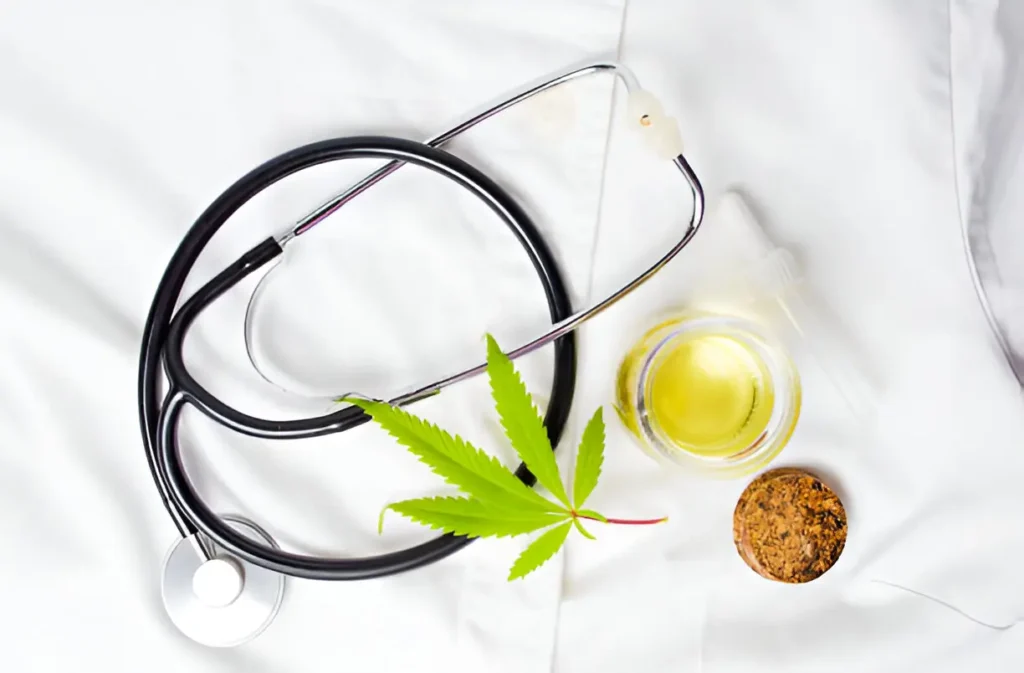A good night’s sleep is important for overall health and well-being. Experts say adults should sleep at least seven hours each night. Good sleep helps form memories, prevents illness, and ensures that you feel rested and have energy for the next day.
One way people are trying to sleep better is by taking cannabidiol (CBD), which comes from cannabis plants. Full spectrum CBD oil is often used to improve sleep, but more research is needed to know exactly how CBD affects sleep quality.
How Can CBD Benefit Sleep?
CBD is the second most common substance in the cannabis sativa plant, and many studies suggest it may indirectly help with sleep. CBD—which doesn’t make you feel “high” like THC does—might help people with different sleep problems, including trouble falling asleep and restless leg syndrome, as well as other conditions that can make sleep worse, according to research.
For example, CBD may help people relax by reducing anxiety and pain, two things that can make it hard for someone to fall or stay asleep.
Qurist, a brand specializing in CBD products, offers Sleepeasy, their in-house formulated cannabis-based medicinal CBD for sleep. These tablets have a perfect balance of CBD and THC that help you fall asleep faster and deeper, so you wake up refreshed and rejuvenated the next day. Sleepeasy is all-natural, preservative-free, and has no drug interactions. Each capsule contains 35mg CBD, 15mg THC, and chamomile.
Insomnia
The hypothalamus is a part of the brain that helps control sleep-related functions, including body temperature and sleep patterns. CBD can help people with insomnia because it works with the hypothalamus to control stress. “Insomnia happens when stress reactions are too active during rest time when we’re not trying to deal with conscious stress,” experts say. “CBD can reduce this overactive stress hormone cycle and balance the sleep and wake rhythm through opposing hormones.”
In a study looking at how cannabis affects insomnia, researchers found CBD was better at reducing insomnia symptoms than THC, which is the most common active substance in the cannabis sativa plant that makes people feel “high”.
Circadian Rhythm Disorders
Circadian rhythm disorders, also called sleep-wake cycle disorders, happen when the body’s internal clock, which controls when you fall asleep and wake up, is out of sync with your environment. These disorders can develop when sleep habits change, often due to travel or work, or because of a medical condition, aging, or genetics.
CBD may improve both how well you sleep and how long you sleep by helping the body go through normal sleep stages without interruption, which could help people with circadian rhythm disorders. “CBD’s effect on certain receptors in the body starts a chain of events that leads to more natural sleep timing relative to the day-night cycle,” experts explain. However, more research is needed. CBD can be especially helpful for people like nurses who have circadian rhythm disorders due to shift work, where sleep times change depending on their work schedule.
Anxiety
Many studies have found CBD might help treat anxiety disorders. While more research is needed, studies link CBD use to better sleep because it can reduce anxiety.
“CBD is known to reduce anxiety—without causing the drowsiness that can come with THC products—making it a good tool to calm worrying thoughts before going to sleep,” experts say. CBD works on certain receptors in the brain areas that control emotions, memories, and learning patterns. When these brain areas are out of balance, such as when a troubling memory leads to anxiety and sleeplessness, CBD can help suppress that memory and, as a result, help with sleep.
Restless Leg Syndrome
CBD may treat restless leg syndrome (RLS), a nerve condition that can affect sleep quality and quantity by causing an unpleasant and uncontrollable urge to move the legs. Early research suggests CBD can reduce how often nerves fire abnormally, which leads to involuntary muscle twitching, the main symptom of RLS. “For a person who tends to wake up because of leg movement during sleep, this can be very helpful,” experts say.
Many early findings connecting CBD use and improved RLS symptoms are based on patient’s reports of their experiences, and more research is needed to confirm if CBD is an effective treatment for RLS.
Chronic Pain
tudies show CBD might help relieve pain. Researchers find that when people apply products with CBD oil to painful areas, they report less pain and swelling, which is often linked to inflammation.
Experts say that for people who can’t handle the “high” effects of THC, CBD—taken by mouth or applied to the skin—offers another option for pain relief. “For sleep, having good pain control is crucial to being able to relax both body and mind without worrying about addictive or harmful effects of other pain relief options,” they explain.
Also Read-The Top Rated Pre-Workout Supplements for Peak Performance
